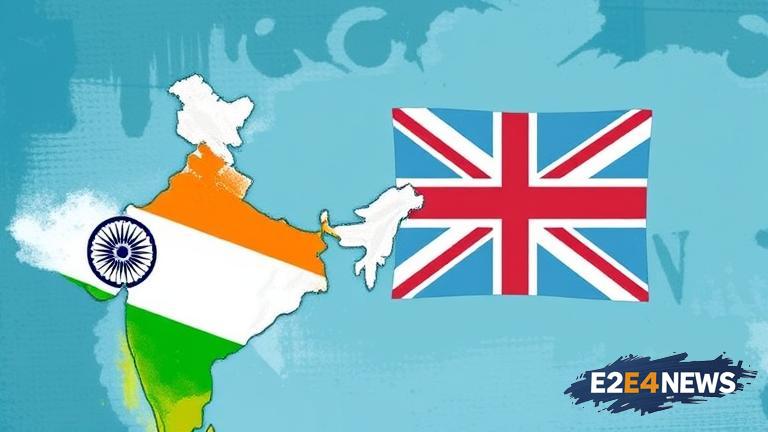The Indian government has expressed concerns over the UK’s proposed carbon tax, stating that it will retaliate if the tax hurts the country’s domestic exports. According to Piyush Goyal, the Minister of Commerce and Industry, India will take necessary measures to protect its interests if the UK’s carbon tax is imposed. The proposed tax is aimed at reducing carbon emissions and promoting sustainable practices, but India fears that it will unfairly target its exports. The Indian government has been in talks with the UK to resolve the issue, but so far, no agreement has been reached. The carbon tax is expected to be implemented in the UK from 2023, and India is worried that it will lead to a significant increase in costs for its exporters. The tax will be levied on imports of goods such as steel, cement, and aluminum, which are major export items for India. The Indian government has argued that the tax is discriminatory and will hurt the country’s competitiveness in the global market. Goyal has stated that India will not hesitate to take retaliatory measures if the tax is imposed, including imposing its own taxes on UK imports. The issue has sparked a debate over the impact of carbon taxes on international trade and the need for a level playing field. The World Trade Organization (WTO) has also been approached to intervene in the matter. India has argued that the carbon tax is a trade barrier and violates WTO rules. The UK has defended its proposed tax, stating that it is necessary to reduce carbon emissions and meet its climate change commitments. The European Union has also implemented a similar carbon tax, which has been opposed by India and other developing countries. The issue is expected to be discussed at the upcoming WTO meeting, where India will push for a resolution. The Indian government has also been in talks with other countries, including the US and China, to build a coalition against the carbon tax. The tax is expected to have a significant impact on India’s exports, which are already facing challenges due to the COVID-19 pandemic. The Indian government has stated that it will do everything possible to protect its exporters and ensure that they are not unfairly targeted. The issue has also sparked a debate over the need for a global agreement on carbon pricing, which would ensure that all countries are subject to the same rules. The Indian government has argued that a global agreement is necessary to prevent trade wars and ensure that the transition to a low-carbon economy is fair and equitable. The UK’s proposed carbon tax is part of its efforts to reduce carbon emissions and meet its climate change commitments. The tax is expected to raise significant revenue for the UK government, which will be used to fund green initiatives. However, the tax has been opposed by many countries, including India, which argue that it will hurt their exports and undermine their competitiveness. The issue is expected to be a major point of contention at the upcoming COP26 climate summit, where countries will gather to discuss global climate change commitments. The Indian government has stated that it will push for a fair and equitable agreement on carbon pricing, which takes into account the needs and concerns of developing countries.
